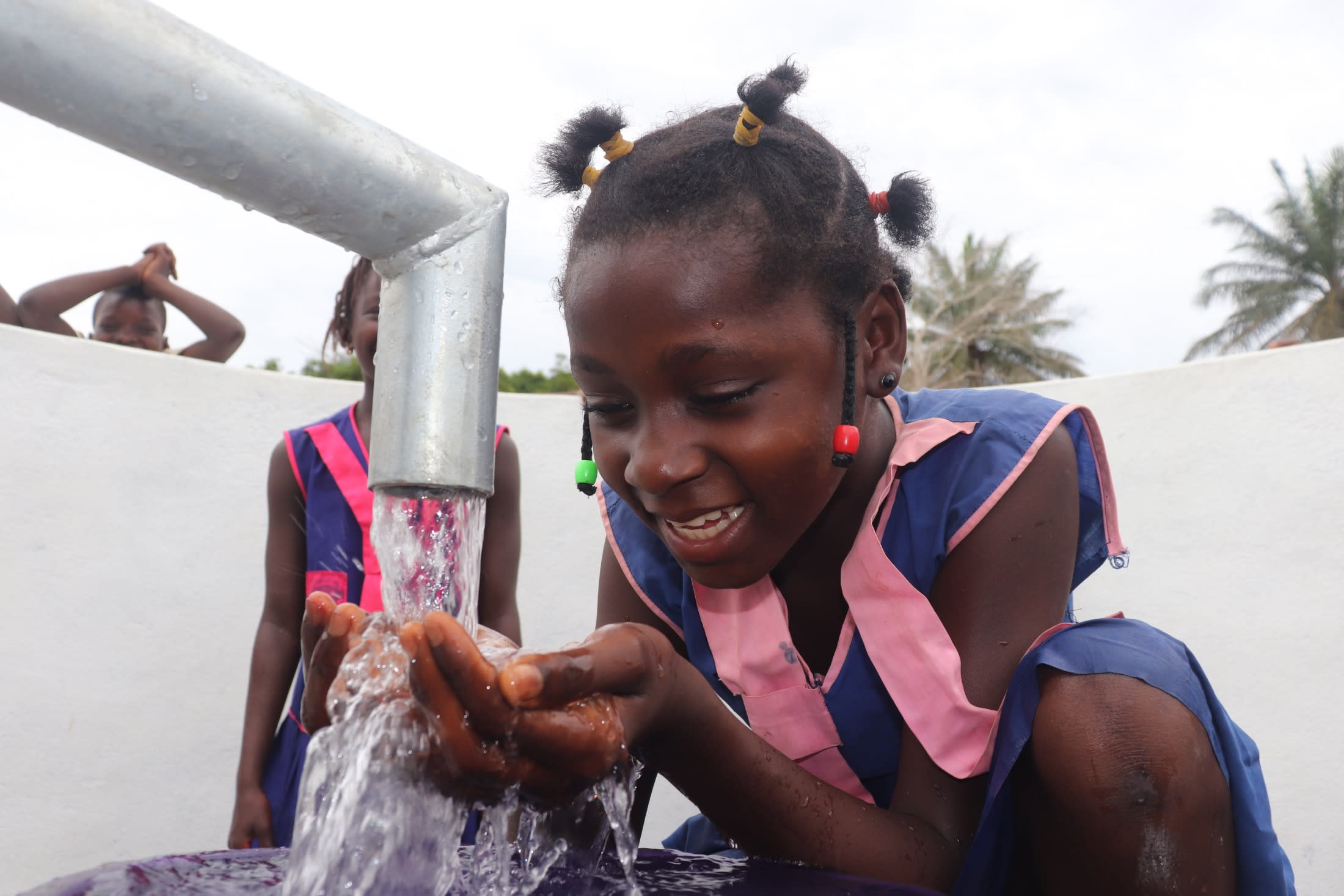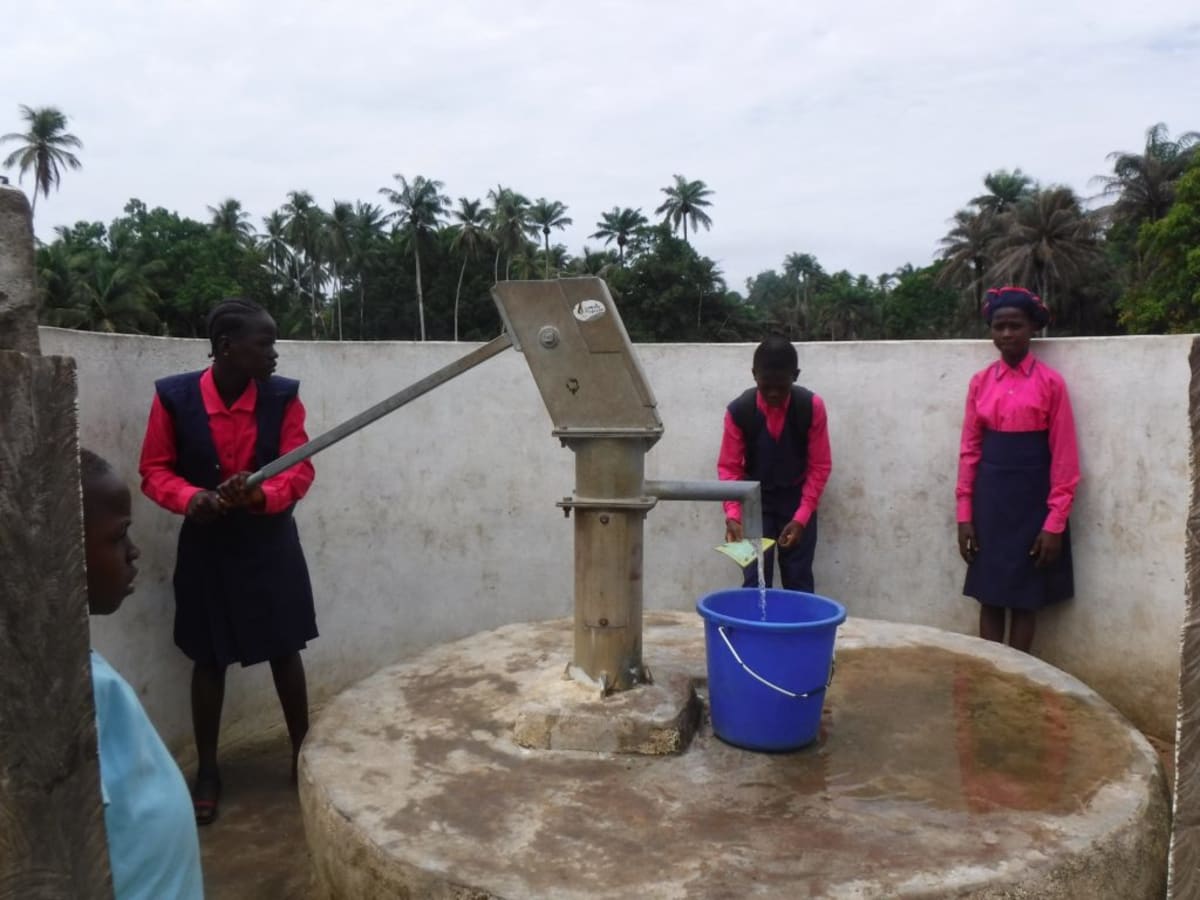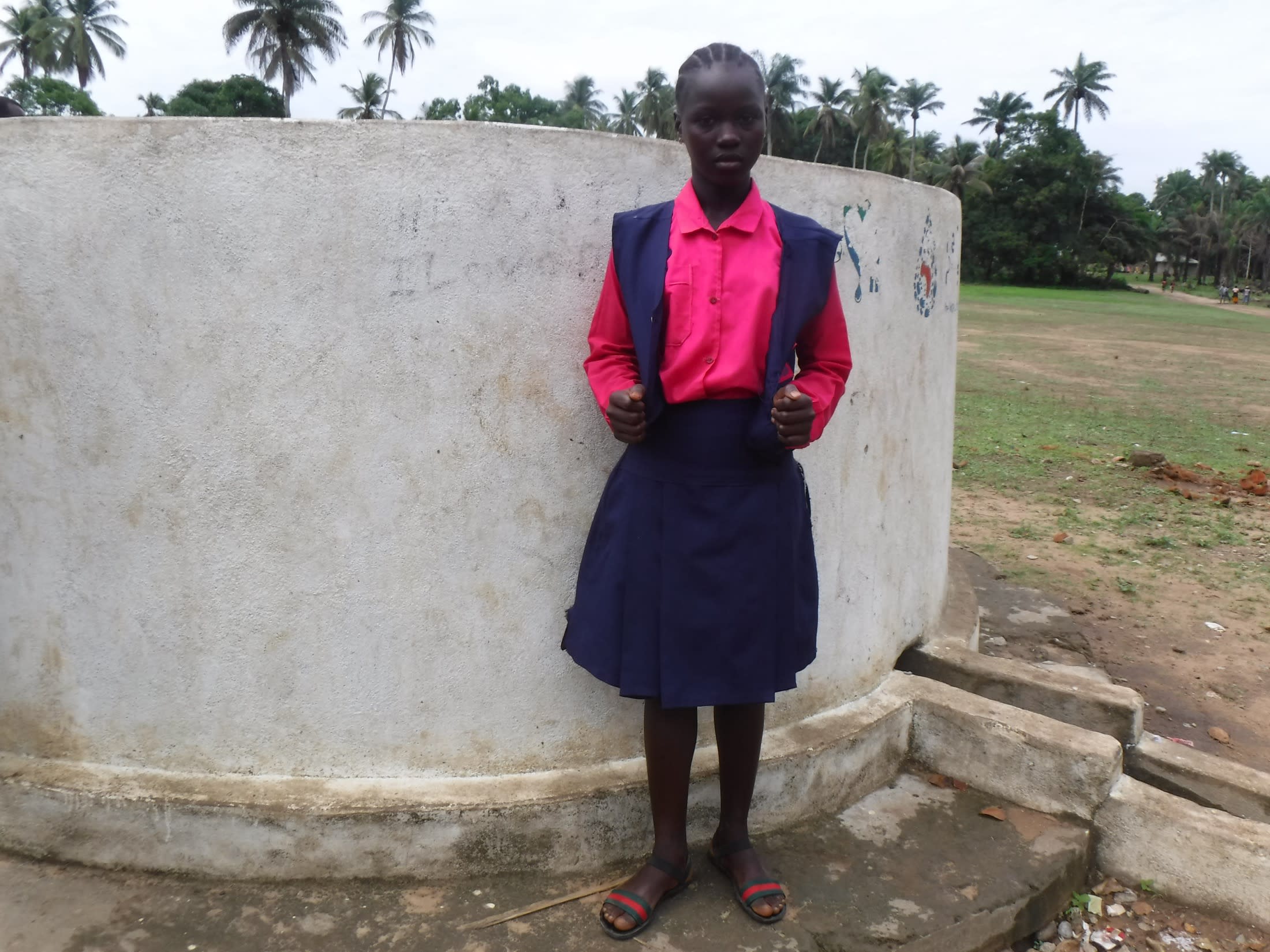Ma-king village is located close to the Rokel River. Most inhabitants living here depend on fishing, farming, and mining granite for their living. In fact, Ma-king village has one of the largest deposits of granite in the country. As a result, many mining companies come to this community to mine these stones.
Community members started St. Peter Roman Catholic Primary School in Ma-king village so that their children would no longer need to walk a very long distance to neighboring villages for schooling. Mr. Ibrahim S. Bangura, a teacher in the community, was one of the founding members of this school. He said the main idea behind the school's formation was based on several incidents that led to children being harmed as they walked to schools farther off. The community people summoned a meeting in 2001 to discuss the importance of having a primary school in their village, which they began soon after.
The community youth and other stakeholders started building a mud-block house for a school at the village entrance. The school was first roofed with thatch and later upgraded to a zinc roof. The school population increased over the years until 2004, when Miss Kargbo asked the community to allow the Catholic Mission to take over the school to help handle the increasing number of students with new facilities. They all agreed at her point, and she spoke to the Catholic Mission at Port Loko to take over their Village School.
It was at that time that Father Peter A. Mansaray took over and started the construction process of the new school facilities. Upon the school's completion, the community and the Catholic mission agreed to name the school in Father Peter's name as he was a hard-working missionary who supervised the entire construction process.
Today, the school serves 261 students, but their protected well is no longer able to keep up with the school's water needs. The well has an insufficient quantity of water and runs dry at certain times of the year. The school's rainwater source is seasonal and so not available at all times. To get enough water, students and staff must then turn to the nearest stream - an open source that is unsafe for drinking and off the school grounds. Community members also use the stream to meet their water needs, which leads to overcrowding along the banks at the best access points.
"Throughout these years, when our school well gets dry, we choose some school kids every morning to search for clean drinking water for the school. This makes them miss some classes," explained teacher Ibrahim Bangura.
"Also, the school administration finds it difficult sometimes to care for the school toilet facility. Sometimes, when the water is finished, we send any school kid who wants to drink water to the stream. School kids who get sick and need immediate attention with water have to be sent to their parents because of our lack of safe drinking water."
Here’s what we’re going to do about it:
Well Rehabilitation
The well marked for this overhaul is dry for a few months every year and needs major work to supply adequate, clean water to the community year-round. The pump will be removed, and a hand auger will be lowered inside and powered by a drill team. This hand auger will allow the team to drill several meters deeper to hit a sufficient water column to ensure the well supplies water throughout all seasons.
As the team drills, the casing will be installed, transforming the bottom of this hand-dug well into a borehole. PVC piping will connect this lower system directly to the pump, a construction that we know will also improve the quality of water.
Once this plan is implemented, everyone within the community will have access to safe drinking water in quality and quantity, even through the dry months.
Hygiene and Sanitation Training
There will be hygiene and sanitation training sessions offered for three days in a row.
After our visit, the hygiene and sanitation trainer decided it would be best to teach community members how to build a tippy tap (a hand-washing station built with a jerrycan, string, and sticks). They will use these tippy taps for handwashing demonstrations and will also teach about other tools like dish racks and the importance of properly penning in animals.
This training will also strengthen the water user committee that manages and maintains this well. They enforce proper behavior and report to us whenever they need our help solving a serious problem, like a pump breakdown.

 Borehole Well and Hand Pump
Borehole Well and Hand Pump




































